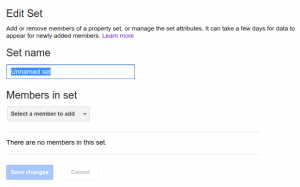
As the landscape of SEO changes, some methods which once added value are now best avoided. Take for example guest posting in order to gain back links. At one time, it was considered an essential tool for any link building strategy. Unfortunately, as with many SEO practices, improper use has led to its reputation as a spammy approach.
Many guest-posts now lack quality content in an effort to gain a back link with as little work as possible. As Google now look to weed out these unruly bloggers, back links on certain networks can be penalised.
It may seem like a dying practice, but good quality guest posts should still have a place in your SEO strategy. That’s right, you can still develop your brand and drive traffic with this age old technique. It just requires a careful and considered approach. Here’s 5 ways to continue benefiting from guest posting.
Post in your niche
In order for your blog post to be relevant, you’ll most likely have to post within your niche. As an example, it wouldn’t be worthwhile writing a guest post for a fashion blog if you operate in the food sector. Although this cross-promotion works for larger and reputable websites, it’s often seen as spam-driven for smaller businesses. Instead focus on writing engaging content and sticking to your industry sector. This shouldn’t set any alarms ringing with Google.
Choose high authority sites
Preferably, guest posts should be placed on sites larger than yours and must always be credible. Google recognises the relationship with other high-profile sites and are less likely to question the content as dodgy.
Before investing your time writing a blog post, research the authority of the destination site. The easiest way to do this is with the website ‘Open Site Explorer’. Its ranking system takes into consideration hundreds of factors to provide an accurate score on the domain authority.
Limit the anchor text
Great blog posting is all about engaging content that users will benefit from, enjoy and share. The process of adding back links should now be seen as secondary. Add these only when they are relevant in the text and add some benefit to the reader. If you’ve discussed a show-stopping recipe for cheesecake, this could be an opportunity to link back to the recipe on your website.
If you’re content is too rich in anchor text, you’ll likely face harsh consequences. Google no longer places emphasis on this for indexing.
Link elsewhere
Before publishing a guest post, it’s important to ask yourself whether this article brings maximum value to the target audience. If it does, it will likely have links to other sites and not just your own.
Add links to other authoritative sites to gain further credibility, even if that means linking to competitors. After all, it’s going to look very suspicious if you’re only liking back to yourself.
Write awesome content
Lastly and most importantly, be sure to spend adequate time writing a post to be proud of. Don’t take any shortcuts and always ensure posts have adequate depth. Usually, it’s those that are over 2,000 words that give the best results. Anything shorter than this and you’ll likely miss out on the sharing and viral potential.
Digital & Social Articles on Business 2 Community(63)








